Space Cruises: The Next Evolution of Luxury Travel
Introduction
Imagine watching Earth from orbit while sipping champagne in zero gravity — that’s the promise of space cruise tourism, the next frontier in luxury travel. As ocean cruises evolve from sea to space, companies like Space Perspective and Orion Span are turning science fiction into reality. This guide compares Earth’s most elite ocean cruises with their upcoming orbital counterparts, giving you a glimpse of what’s next in luxury exploration.
1. From Ocean to Orbit: The Evolution of Cruise Travel
Cruises have always been synonymous with luxury, adventure, and exclusivity. But the world is shifting beyond oceans toward the cosmos itself. The same guests who once sailed across the Mediterranean or the Caribbean are now eyeing low-Earth orbit itineraries for 2026 and beyond.
Just like traditional cruises offer panoramic ocean views, space cruises will offer 360° views of Earth itself, glowing blue beneath the velvet darkness of space.
Must Read: Space travelers interested in romance-themed journeys may also enjoy Interstellar Honeymoons: Love Stories Written Among the Stars.
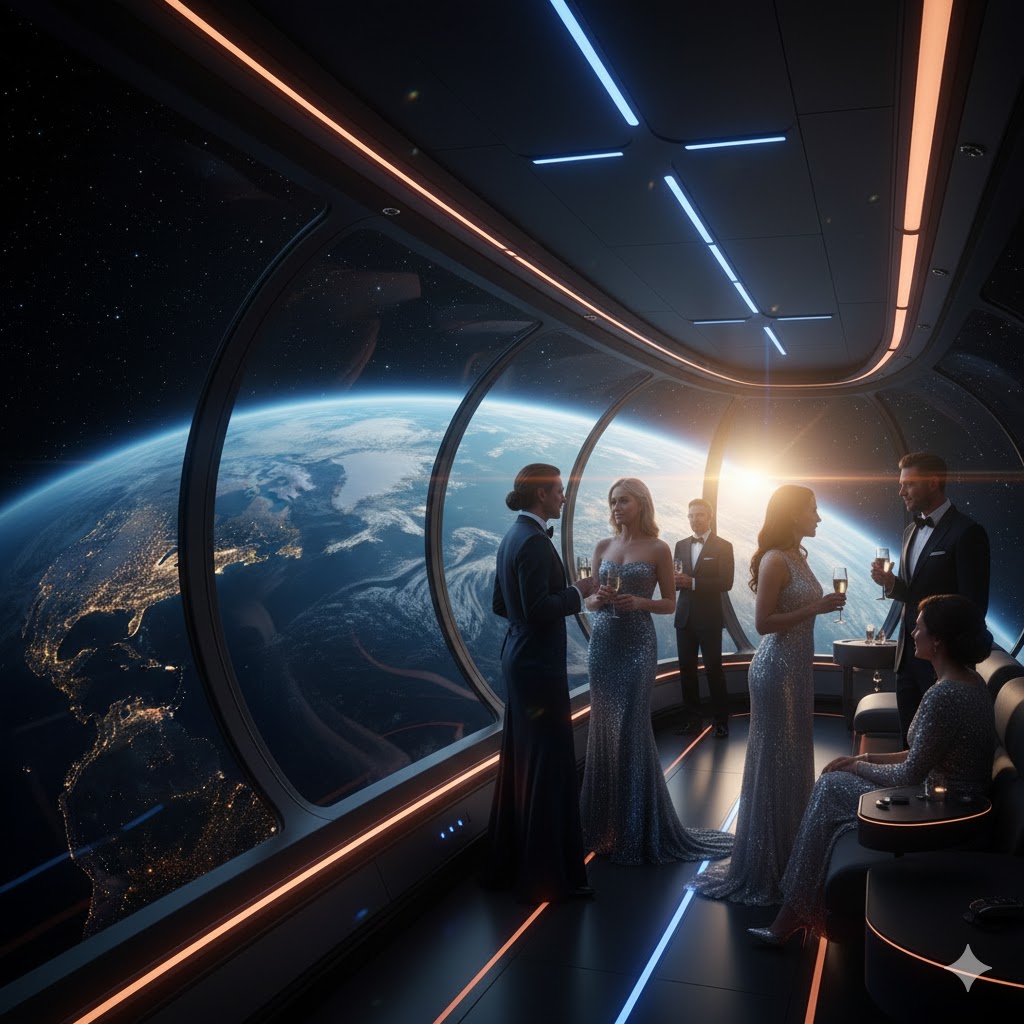
2. The Space Perspective: Neptune Capsule Experience
Space Perspective, founded by Jane Poynter and Taber MacCallum, is redefining the meaning of luxury cruising. Their Neptune Capsule gently ascends to the edge of space using a massive balloon instead of rockets. The six-hour journey takes eight passengers up to 100,000 feet, where they can witness the curvature of Earth and the blackness of space — without experiencing harsh G-forces.
Inside, travelers relax in plush reclining seats, enjoy fine dining, and sip champagne while connected via high-speed internet.
- Eco-luxury focus: The capsule uses renewable hydrogen, making it a carbon-neutral voyage — a key differentiator from both ocean cruises and rocket launches.
- Ticket cost: Around $125,000 per person, targeting elite adventure travelers.
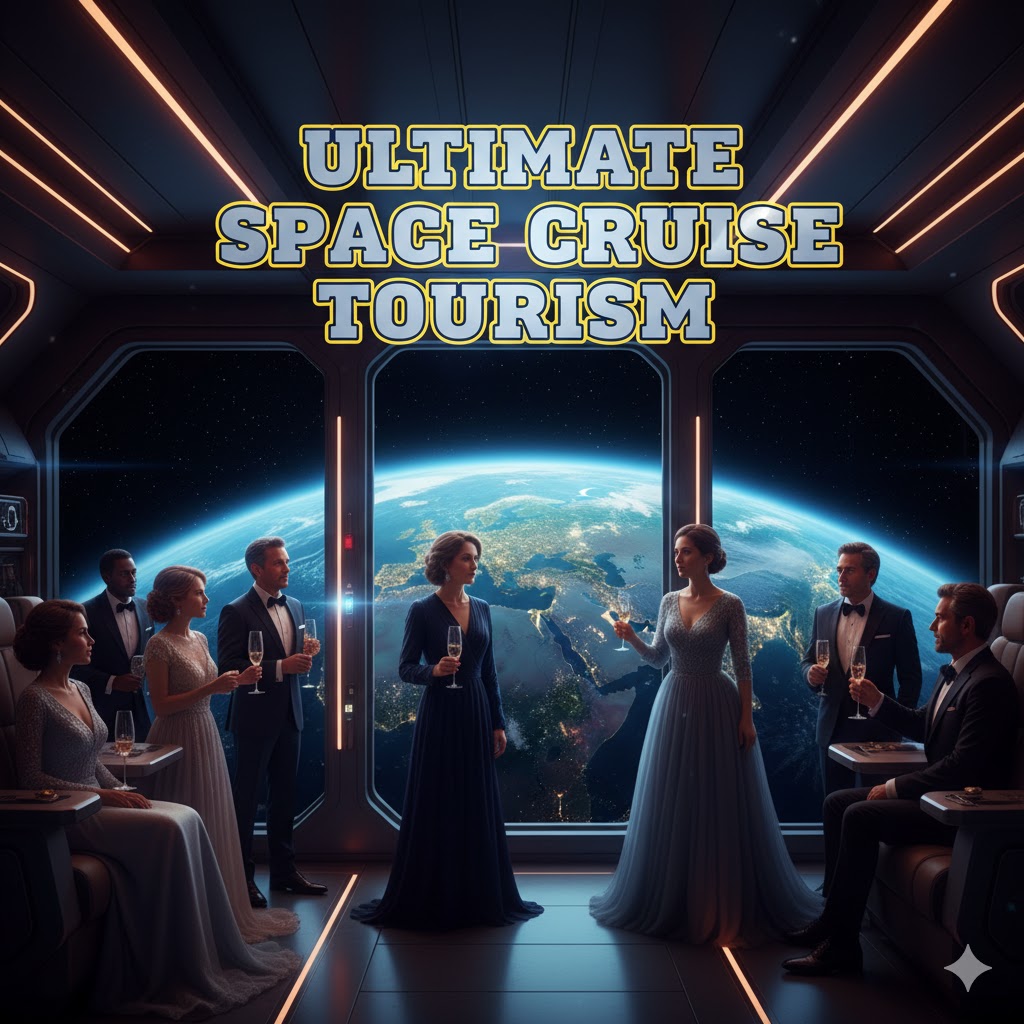
Source: Learn more about booking options on Space Perspective’s official website.
3. Orion Span: The Space Hotel and Cruise Fusion
The Orion Span Aurora Station aims to become the world’s first luxury space hotel — functioning as both a cruise ship and a resort in orbit. This floating capsule will accommodate guests for multi-day stays, offering private suites, Earth-viewing windows, and zero-gravity leisure areas.
- Duration: 12-day journeys orbiting Earth at 200 miles above sea level.
- Amenities: Fine dining, VR-based excursions, onboard spa modules, and astronaut-led educational sessions.
- Target guests: Luxury cruise veterans and corporate explorers seeking unmatched exclusivity.
Source 2: Details are available on Orion Span’s website.
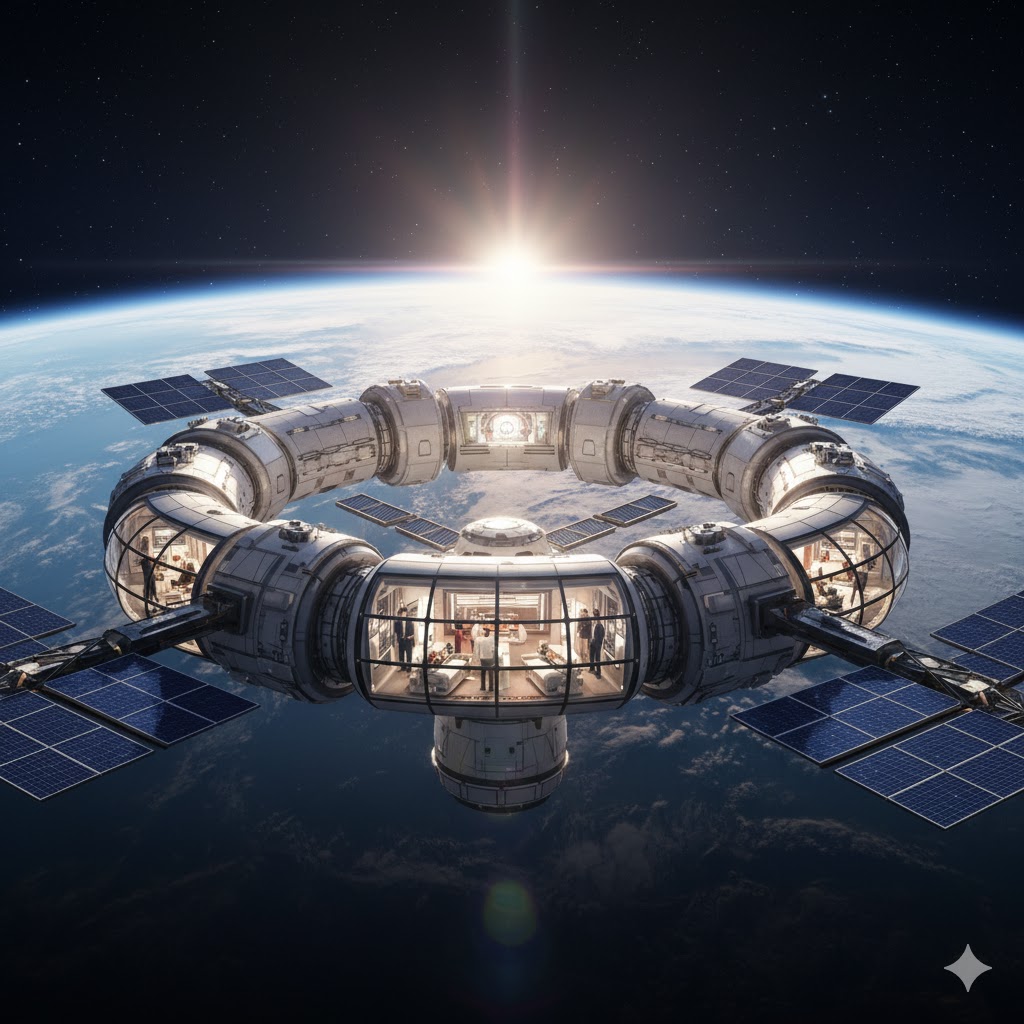
4. Comparing Ocean Cruises vs. Orbital Cruises
| Feature | Ocean Cruise | Space Cruise |
|---|---|---|
| Scenery | Ocean sunsets & exotic ports | Earth’s curvature, stars, and auroras |
| Duration | 7–14 days | 6 hours to 12 days |
| Dining | Michelin-style ocean dining | Zero-gravity fine dining with molecular gastronomy |
| Comfort | Luxury suites, ocean breeze | Pressurized capsules, panoramic windows |
| Price | $3,000–$20,000 | $100,000–$10 million |
| Environmental Impact | Fuel emissions | Hydrogen or electric propulsion (eco-friendly) |
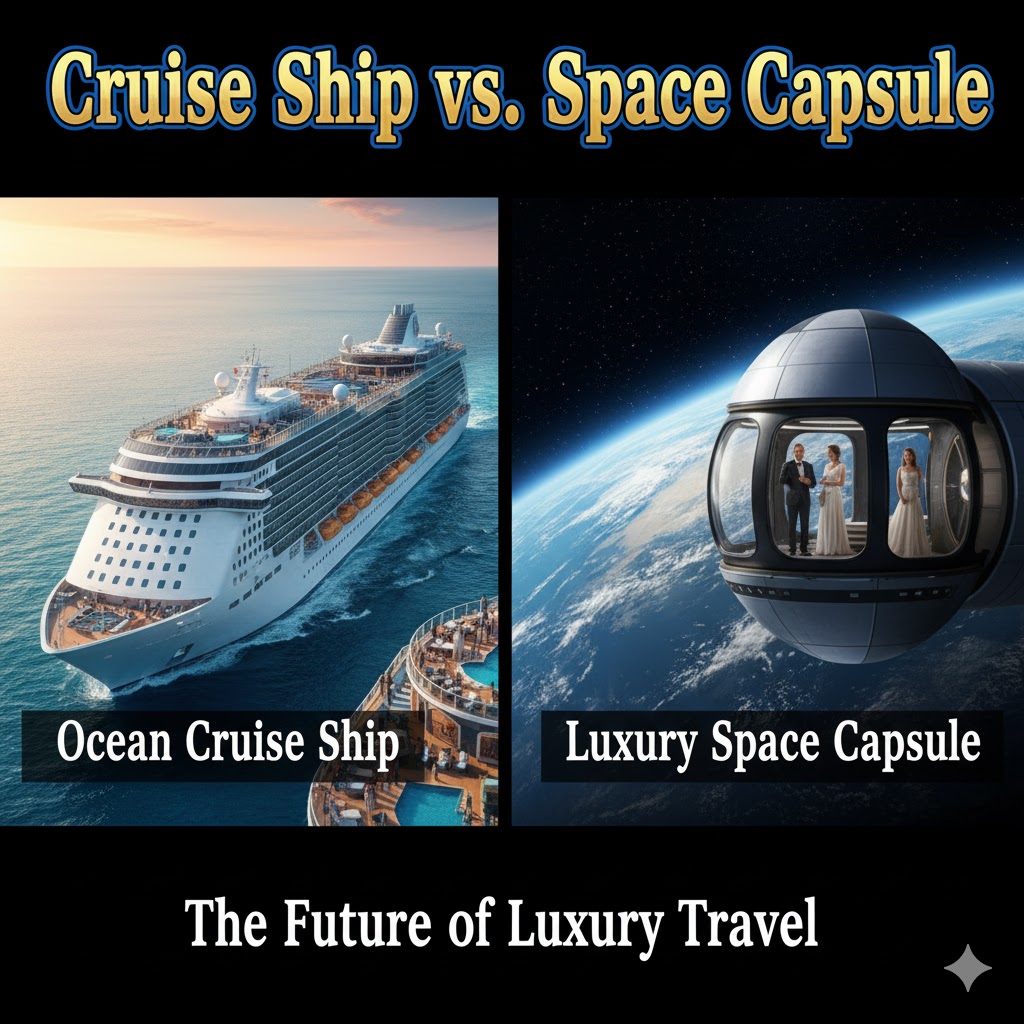
Both types of cruises focus on comfort, luxury, and exclusivity, but orbital cruises elevate these to cosmic levels — literally.
Must Read: For those fascinated by future luxury experiences, read Zero-Gravity Dining: The Future of Space Food Tourism.
5. The Onboard Experience: Dining, Leisure & View
Aboard these orbital capsules, guests can expect:
- Zero-gravity dining: Meals designed by Michelin-star chefs adapted for microgravity conditions.
- Cinematic Earth views: Panoramic windows for uninterrupted stargazing.
- Luxury interiors: Futuristic design with adjustable ambient lighting, touch-screen panels, and AI assistants.
- Wellness in orbit: Low-gravity yoga, meditation, and sound therapy to balance the mind-body connection in space.
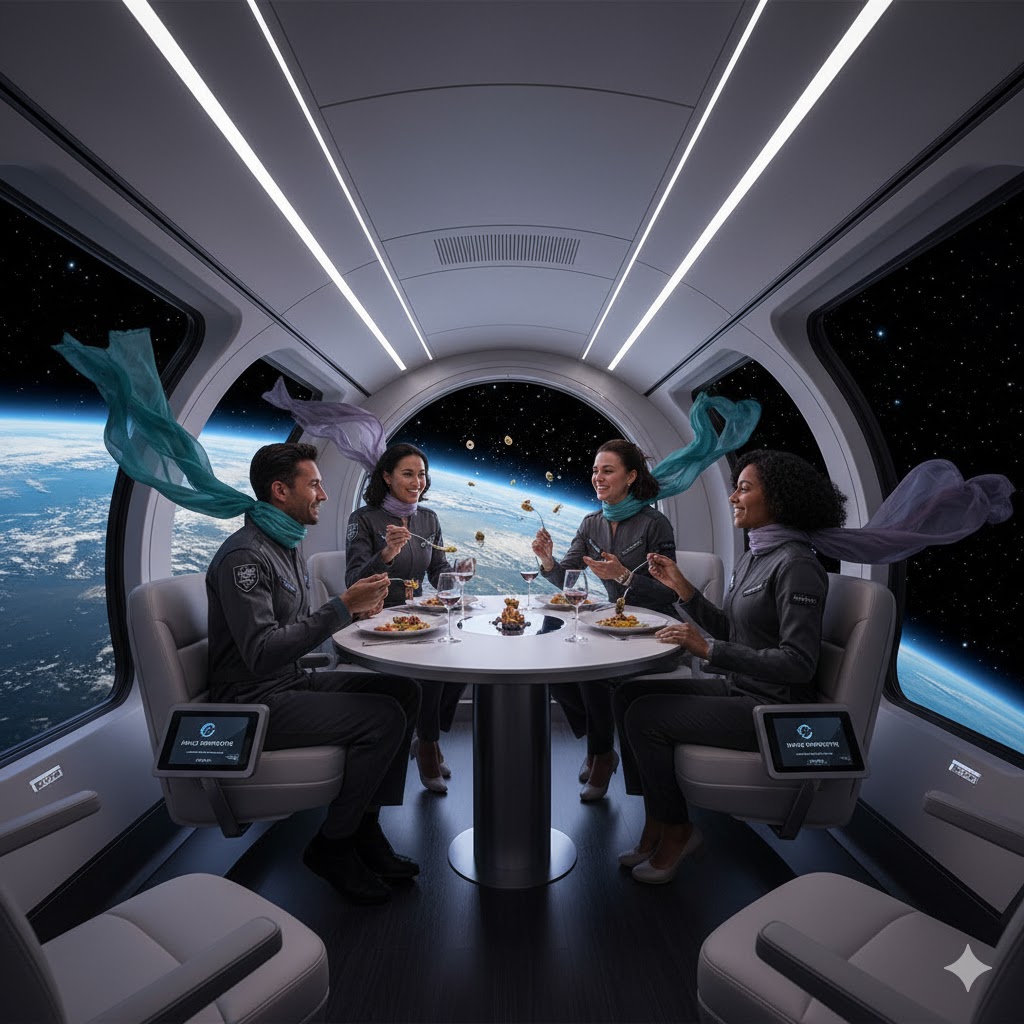
6. The Future of Space Cruise Tourism
The space cruise tourism industry is predicted to grow exponentially by 2030, attracting billionaires, adventure seekers, and eventually the broader luxury travel market.
Early concepts include:
- Interplanetary routes: Potential lunar flybys.
- Artificial gravity modules: To mimic Earth-like comfort.
- Astronomical tours: Interactive sky-mapping via onboard telescopes.
Companies are collaborating with aerospace leaders to make orbital cruises safer, more accessible, and more sustainable.
7. Sustainability in Space Luxury Travel
Unlike traditional cruises that emit tons of carbon dioxide, space tourism companies are committed to eco-friendly propulsion systems. Hydrogen balloons, reusable modules, and electric propulsion minimize the impact on Earth’s atmosphere.
This focus on sustainability ensures long-term viability — a selling point for affluent eco-conscious travelers.

8. Emotional and Cultural Impact
Much like early explorers crossing oceans, the first space cruise tourists will experience something profound — the Overview Effect, a psychological shift in how travelers view Earth and humanity. Many describe it as life-changing, leading to renewed respect for our planet and the fragility of life.
9. How to Prepare for a Space Cruise
To join the first generation of orbital travelers:
- Register interest with companies like Space Perspective or Orion Span.
- Complete health and microgravity training.
- Attend a pre-flight luxury orientation program.
- Prepare for breathtaking views that no ocean cruise can match.
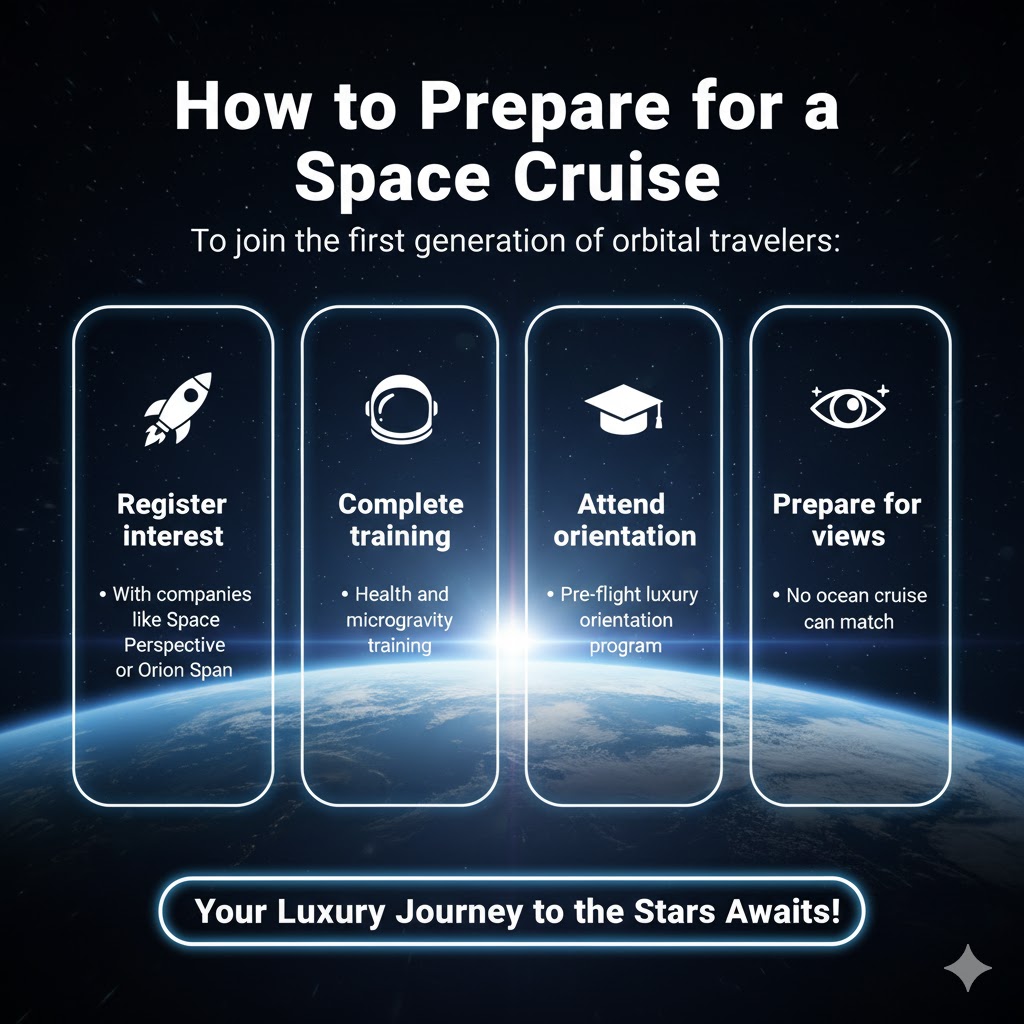
Conclusion
Space cruise tourism represents the next evolution of luxury travel, transforming how humanity explores and experiences the cosmos. From the eco-luxury Neptune Capsule to the futuristic Orion Span, these experiences blend adventure, technology, and comfort into a new age of exploration.
Soon, the question won’t be “Where are you sailing?” but rather, “Which orbit are you cruising?”
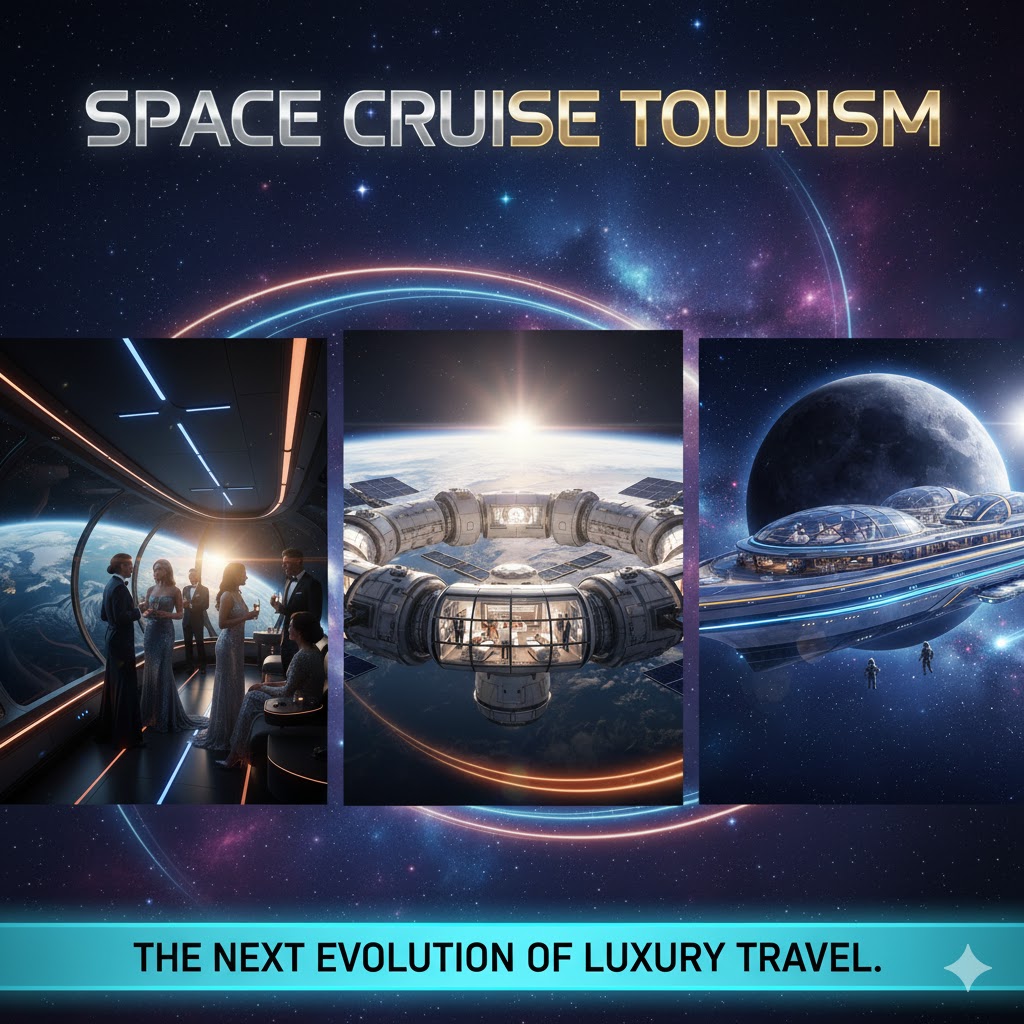
FAQs
Q1: What is space cruise tourism?
It’s a new luxury travel segment that offers orbital or near-space journeys aboard capsules or stations like the Neptune Capsule and Orion Span.
Q2: How much does a space cruise cost?
Current prices range from $125,000 for suborbital experiences to $10 million for extended orbital stays.
Q3: Is space cruise tourism safe?
Yes, leading companies follow NASA-level safety standards and design capsules with redundant systems for passenger protection.
Q4: When will space cruises be available?
Commercial launches are expected between 2026 and 2028, with pre-bookings already open for limited seats.
Q5: How does it differ from ocean cruises?
Space cruises replace ocean views with the entire Earth’s horizon, offering unparalleled perspective and technological sophistication.




Pingback: Space Concert Experience: Next Sensational Wave of Zero Gravity Music (2035 Vision)
Pingback: Orbit Art Tourism: The Dazzling Future of Space Art Galleries (2035 Vision)
Pingback: Moon Wedding Travel: Ultimate Cosmic Moonlight Marriages Dream 2035